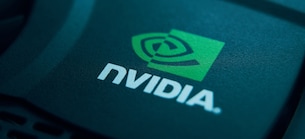Anthropic rolls out Claude AI for finance, integrates with Excel to rival Microsoft Copilot
Werte in diesem Artikel
Anthropic is making its most aggressive push yet into the trillion-dollar financial services industry, unveiling a suite of tools that embed its Claude AI assistant directly into Microsoft Excel and connect it to real-time market data from some of the world's most influential financial information providers.The San Francisco-based AI startup announced Monday it is releasing Claude for Excel, allowing financial analysts to interact with the AI system directly within their spreadsheets — the quintessential tool of modern finance. Beyond Excel, select Claude models are also being made available in Microsoft Copilot Studio and Researcher agent, expanding the integration across Microsoft's enterprise AI ecosystem. The integration marks a significant escalation in Anthropic's campaign to position itself as the AI platform of choice for banks, asset managers, and insurance companies, markets where precision and regulatory compliance matter far more than creative flair.The expansion comes just three months after Anthropic launched its Financial Analysis Solution in July, and it signals the company's determination to capture market share in an industry projected to spend $97 billion on AI by 2027, up from $35 billion in 2023.More importantly, it positions Anthropic to compete directly with Microsoft — ironically, its partner in this Excel integration — which has its own Copilot AI assistant embedded across its Office suite, and with OpenAI, which counts Microsoft as its largest investor.Why Excel has become the new battleground for AI in financeThe decision to build directly into Excel is hardly accidental. Excel remains the lingua franca of finance, the digital workspace where analysts spend countless hours constructing financial models, running valuations, and stress-testing assumptions. By embedding Claude into this environment, Anthropic is meeting financial professionals exactly where they work rather than asking them to toggle between applications.Claude for Excel allows users to work with the AI in a sidebar where it can read, analyze, modify, and create new Excel workbooks while providing full transparency about the actions it takes by tracking and explaining changes and letting users navigate directly to referenced cells.This transparency feature addresses one of the most persistent anxieties around AI in finance: the "black box" problem. When billions of dollars ride on a financial model's output, analysts need to understand not just the answer but how the AI arrived at it. By showing its work at the cell level, Anthropic is attempting to build the trust necessary for widespread adoption in an industry where careers and fortunes can turn on a misplaced decimal point.The technical implementation is sophisticated. Claude can discuss how spreadsheets work, modify them while preserving formula dependencies — a notoriously complex task — debug cell formulas, populate templates with new data, or build entirely new spreadsheets from scratch. This isn't merely a chatbot that answers questions about your data; it's a collaborative tool that can actively manipulate the models that drive investment decisions worth trillions of dollars.How Anthropic is building data moats around its financial AI platformPerhaps more significant than the Excel integration is Anthropic's expansion of its connector ecosystem, which now links Claude to live market data and proprietary research from financial information giants. The company added six major new data partnerships spanning the entire spectrum of financial information that professional investors rely upon.Aiera now provides Claude with real-time earnings call transcripts and summaries of investor events like shareholder meetings, presentations, and conferences. The Aiera connector also enables a data feed from Third Bridge, which gives Claude access to a library of insights interviews, company intelligence, and industry analysis from experts and former executives. Chronograph gives private equity investors operational and financial information for portfolio monitoring and conducting due diligence, including performance metrics, valuations, and fund-level data.Egnyte enables Claude to securely search permitted data for internal data rooms, investment documents, and approved financial models while maintaining governed access controls. LSEG, the London Stock Exchange Group, connects Claude to live market data including fixed income pricing, equities, foreign exchange rates, macroeconomic indicators, and analysts' estimates of other important financial metrics. Moody's provides access to proprietary credit ratings, research, and company data covering ownership, financials, and news on more than 600 million public and private companies, supporting work and research in compliance, credit analysis, and business development. MT Newswires provides Claude with access to the latest global multi-asset class news on financial markets and economies.These partnerships amount to a land grab for the informational infrastructure that powers modern finance. Previously announced in July, Anthropic had already secured integrations with S&P Capital IQ, Daloopa, Morningstar, FactSet, PitchBook, Snowflake, and Databricks. Together, these connectors give Claude access to virtually every category of financial data an analyst might need: fundamental company data, market prices, credit assessments, private company intelligence, alternative data, and breaking news.This matters because the quality of AI outputs depends entirely on the quality of inputs. Generic large language models trained on public internet data simply cannot compete with systems that have direct pipelines to Bloomberg-quality financial information. By securing these partnerships, Anthropic is building moats around its financial services offering that competitors will find difficult to replicate.The strategic calculus here is clear: Anthropic is betting that domain-specific AI systems with privileged access to proprietary data will outcompete general-purpose AI assistants. It's a direct challenge to the "one AI to rule them all" approach favored by some competitors.Pre-configured workflows target the daily grind of Wall Street analystsThe third pillar of Anthropic's announcement involves six new "Agent Skills" — pre-configured workflows for common financial tasks. These skills are Anthropic's attempt to productize the workflows of entry-level and mid-level financial analysts, professionals who spend their days building models, processing due diligence documents, and writing research reports. Anthropic has designed skills specifically to automate these time-consuming tasks.The new skills include building discounted cash flow models complete with full free cash flow projections, weighted average cost of capital calculations, scenario toggles, and sensitivity tables. There's comparable company analysis featuring valuation multiples and operating metrics that can be easily refreshed with updated data. Claude can now process data room documents into Excel spreadsheets populated with financial information, customer lists, and contract terms. It can create company teasers and profiles for pitch books and buyer lists, perform earnings analyses that use quarterly transcripts and financials to extract important metrics, guidance changes, and management commentary, and produce initiating coverage reports with industry analysis, company deep dives, and valuation frameworks.It's worth noting that Anthropic's Sonnet 4.5 model now tops the Finance Agent benchmark from Vals AI at 55.3% accuracy, a metric designed to test AI systems on tasks expected of entry-level financial analysts. A 55% accuracy rate might sound underwhelming, but it is state-of-the-art performance and highlights both the promise and limitations of AI in finance. The technology can clearly handle sophisticated analytical tasks, but it's not yet reliable enough to operate autonomously without human oversight — a reality that may actually reassure both regulators and the analysts whose jobs might otherwise be at risk.The Agent Skills approach is particularly clever because it packages AI capabilities in terms that financial institutions already understand. Rather than selling generic "AI assistance," Anthropic is offering solutions to specific, well-defined problems: "You need a DCF model? We have a skill for that. You need to analyze earnings calls? We have a skill for that too."Trillion-dollar clients are already seeing massive productivity gainsAnthropic's financial services strategy appears to be gaining traction with exactly the kind of marquee clients that matter in enterprise sales. The company counts among its clients AIA Labs at Bridgewater, Commonwealth Bank of Australia, American International Group, and Norges Bank Investment Management — Norway's $1.6 trillion sovereign wealth fund, one of the world's largest institutional investors.NBIM CEO Nicolai Tangen reported achieving approximately 20% productivity gains, equivalent to 213,000 hours, with portfolio managers and risk departments now able to "seamlessly query our Snowflake data warehouse and analyze earnings calls with unprecedented efficiency."At AIG, CEO Peter Zaffino said the partnership has "compressed the timeline to review business by more than 5x in our early rollouts while simultaneously improving our data accuracy from 75% to over 90%." If these numbers hold across broader deployments, the productivity implications for the financial services industry are staggering.These aren't pilot programs or proof-of-concept deployments; they're production implementations at institutions managing trillions of dollars in assets and making underwriting decisions that affect millions of customers. Their public endorsements provide the social proof that typically drives enterprise adoption in conservative industries.Regulatory uncertainty creates both opportunity and risk for AI deploymentYet Anthropic's financial services ambitions unfold against a backdrop of heightened regulatory scrutiny and shifting enforcement priorities. In 2023, the Consumer Financial Protection Bureau released guidance requiring lenders to "use specific and accurate reasons when taking adverse actions against consumers" involving AI, and issued additional guidance requiring regulated entities to "evaluate their underwriting models for bias" and "evaluate automated collateral-valuation and appraisal processes in ways that minimize bias."However, according to a Brookings Institution analysis, these measures have since been revoked with work stopped or eliminated at the current downsized CFPB under the current administration, creating regulatory uncertainty. The pendulum has swung from the Biden administration's cautious approach, exemplified by an executive order on safe AI development, toward the Trump administration's "America's AI Action Plan," which seeks to "cement U.S. dominance in artificial intelligence" through deregulation.This regulatory flux creates both opportunities and risks. Financial institutions eager to deploy AI now face less prescriptive federal oversight, potentially accelerating adoption. But the absence of clear guardrails also exposes them to potential liability if AI systems produce discriminatory outcomes, particularly in lending and underwriting.The Massachusetts Attorney General recently reached a $2.5 million settlement with student loan company Earnest Operations, alleging that its use of AI models resulted in "disparate impact in approval rates and loan terms, specifically disadvantaging Black and Hispanic applicants." Such cases will likely multiply as AI deployment grows, creating a patchwork of state-level enforcement even as federal oversight recedes.Anthropic appears acutely aware of these risks. In an interview with Banking Dive, Jonathan Pelosi, Anthropic's global head of industry for financial services, emphasized that Claude requires a "human in the loop." The platform, he said, is not intended for autonomous financial decision-making or to provide stock recommendations that users follow blindly. During client onboarding, Pelosi told the publication, Anthropic focuses on training and understanding model limitations, putting guardrails in place so people treat Claude as a helpful technology rather than a replacement for human judgment.Competition heats up as every major tech company targets finance AIAnthropic's financial services push comes as AI competition intensifies across the enterprise. OpenAI, Microsoft, Google, and numerous startups are all vying for position in what may become one of AI's most lucrative verticals. Goldman Sachs introduced a generative AI assistant to its bankers, traders, and asset managers in January, signaling that major banks may build their own capabilities rather than rely exclusively on third-party providers.The emergence of domain-specific AI models like BloombergGPT — trained specifically on financial data — suggests the market may fragment between generalized AI assistants and specialized tools. Anthropic's strategy appears to stake out a middle ground: general-purpose models, since Claude was not trained exclusively on financial data, enhanced with financial-specific tooling, data access, and workflows.The company's partnership strategy with implementation consultancies including Deloitte, KPMG, PwC, Slalom, TribeAI, and Turing is equally critical. These firms serve as force multipliers, embedding Anthropic's technology into their own service offerings and providing the change management expertise that financial institutions need to successfully adopt AI at scale.CFOs worry about AI hallucinations and cascading errorsThe broader question is whether AI tools like Claude will genuinely transform financial services productivity or merely shift work around. The PYMNTS Intelligence report "The Agentic Trust Gap" found that chief financial officers remain hesitant about AI agents, with "nagging concern" about hallucinations where "an AI agent can go off script and expose firms to cascading payment errors and other inaccuracies.""For finance leaders, the message is stark: Harness AI's momentum now, but build the guardrails before the next quarterly call—or risk owning the fallout," the report warned.A 2025 KPMG report found that 70% of board members have developed responsible use policies for employees, with other popular initiatives including implementing a recognized AI risk and governance framework, developing ethical guidelines and training programs for AI developers, and conducting regular AI use audits.The financial services industry faces a delicate balancing act: move too slowly and risk competitive disadvantage as rivals achieve productivity gains; move too quickly and risk operational failures, regulatory penalties, or reputational damage. Speaking at the Evident AI Symposium in New York last week, Ian Glasner, HSBC's group head of emerging technology, innovation and ventures, struck an optimistic tone about the sector's readiness for AI adoption. "As an industry, we are very well prepared to manage risk," he said, according to CIO Dive. "Let's not overcomplicate this. We just need to be focused on the business use case and the value associated."Anthropic's latest moves suggest the company sees financial services as a beachhead market where AI's value proposition is clear, customers have deep pockets, and the technical requirements play to Claude's strengths in reasoning and accuracy. By building Excel integration, securing data partnerships, and pre-packaging common workflows, Anthropic is reducing the friction that typically slows enterprise AI adoption.The $61.5 billion valuation the company commanded in its March fundraising round — up from roughly $16 billion a year earlier — suggests investors believe this strategy will work. But the real test will come as these tools move from pilot programs to production deployments across thousands of analysts and billions of dollars in transactions.Financial services may prove to be AI's most demanding proving ground: an industry where mistakes are costly, regulation is stringent, and trust is everything. If Claude can successfully navigate the spreadsheet cells and data feeds of Wall Street without hallucinating a decimal point in the wrong direction, Anthropic will have accomplished something far more valuable than winning another benchmark test. It will have proven that AI can be trusted with the money.Weiter zum vollständigen Artikel bei VentureBeat
Übrigens: Microsoft und andere US-Aktien sind bei finanzen.net ZERO sogar bis 23 Uhr handelbar (ohne Ordergebühren, zzgl. Spreads). Jetzt kostenlos Depot eröffnen und Neukunden-Bonus sichern!
Ausgewählte Hebelprodukte auf Ai
Mit Knock-outs können spekulative Anleger überproportional an Kursbewegungen partizipieren. Wählen Sie einfach den gewünschten Hebel und wir zeigen Ihnen passende Open-End Produkte auf Ai
Der Hebel muss zwischen 2 und 20 liegen
| Name | Hebel | KO | Emittent |
|---|
| Name | Hebel | KO | Emittent |
|---|
Quelle: VentureBeat


